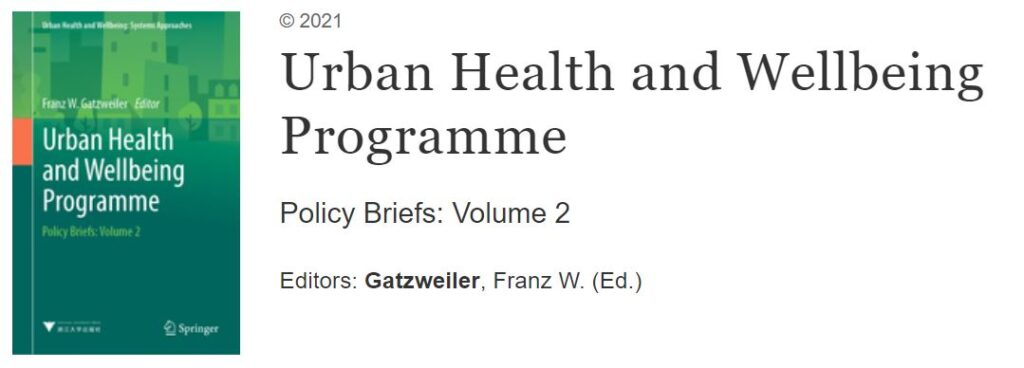On Monday 13th September at 11:00 CEST Dr Diana Benjumea Meija presented her research on “The Spatial and Social Components of Community-led Green Spaces and its Contribution to the Health and Wellbeing of Low-income Communities” at the 9th World Sustainability Forum In the last decade, there has been a surge in projects initiated by urban Read More
Tag: Colombia
Policy Briefs – Urban Health and Wellbeing Programme by Springer
In our most recent contribution to the Volume Two of the book series Urban Health and Wellbeing Systems Approaches, published by Springer and Zhejian University, we discuss the preliminary findings of our research project currently conducted in low-income communities in Medellin Colombia for our program Planting Seeds of Empowerment: Mental Health and Wellbeing of the Read More


